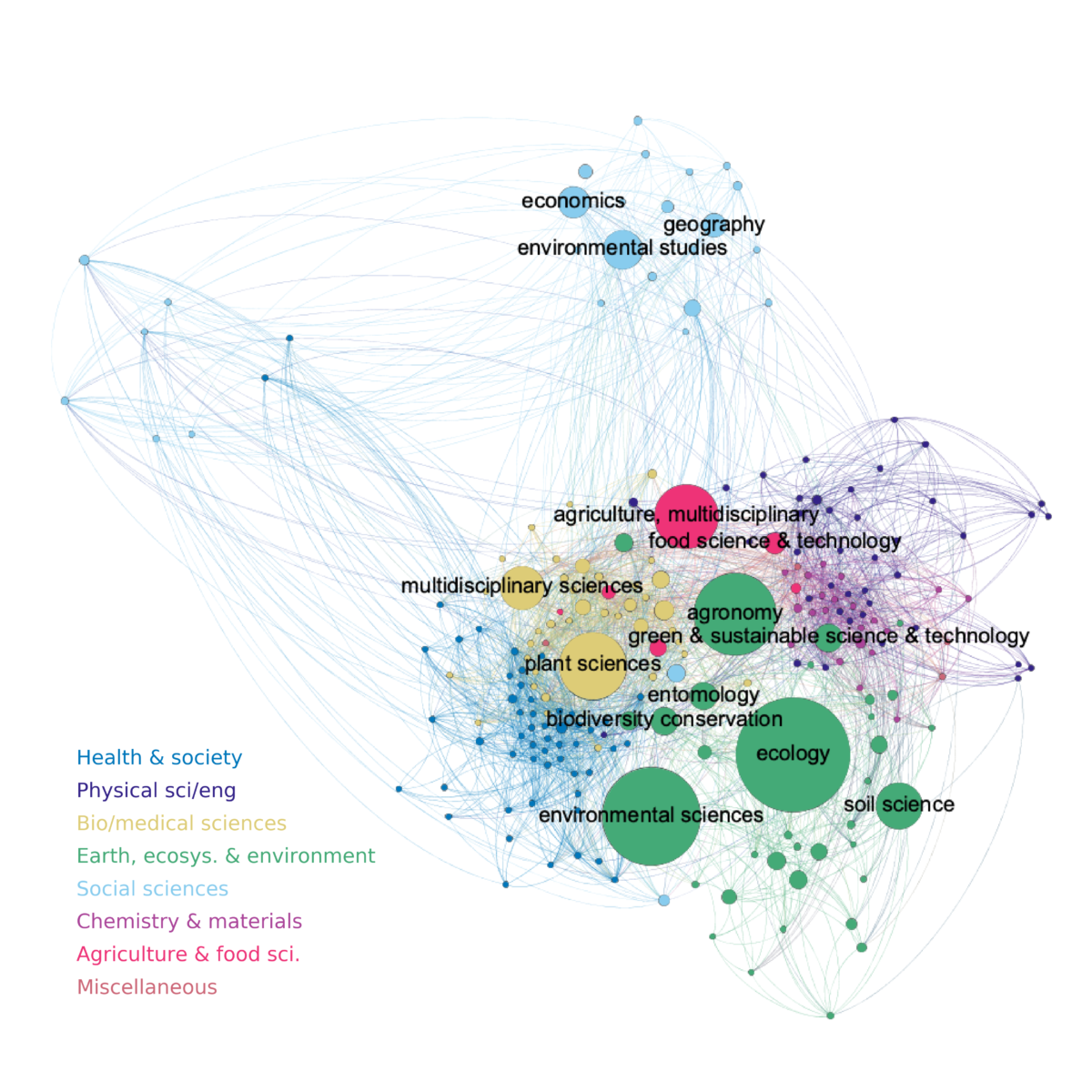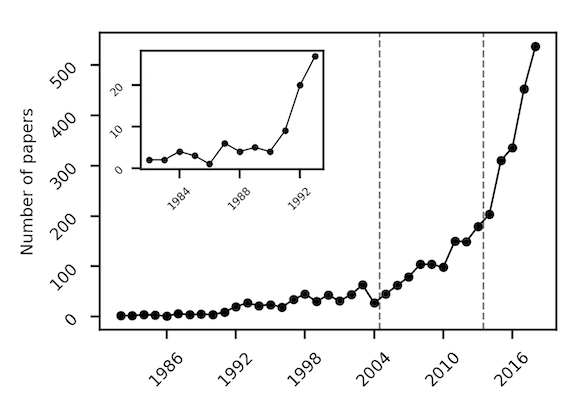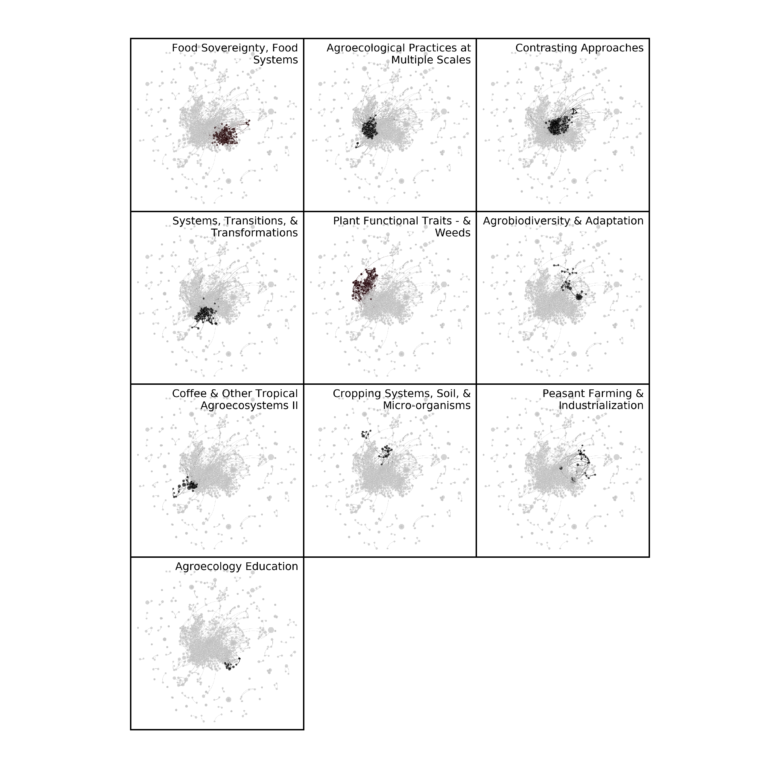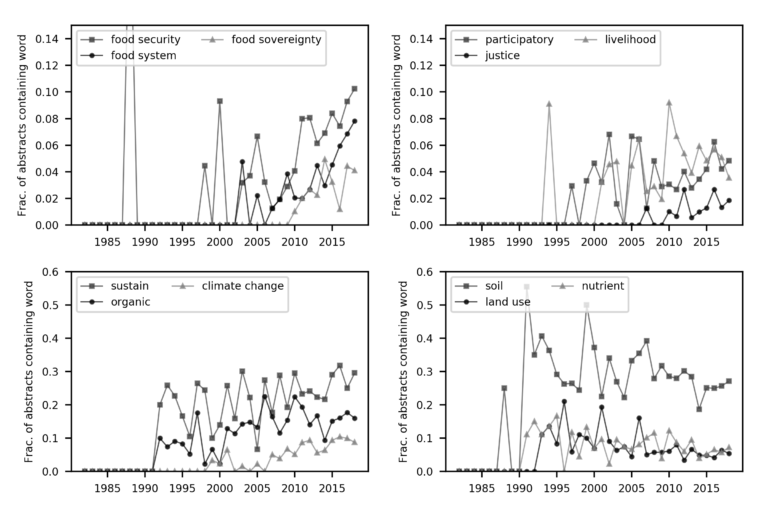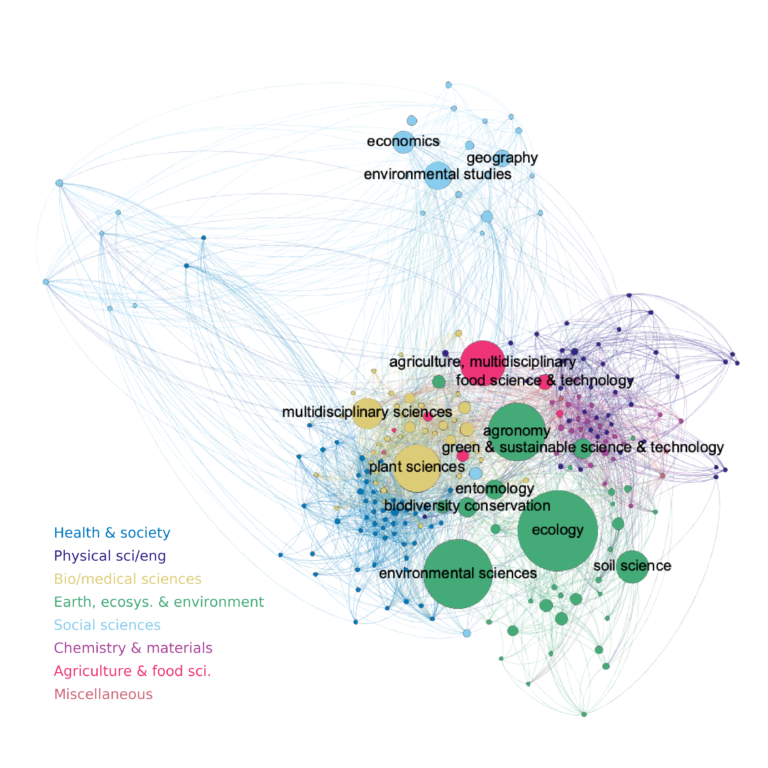NEWS: ALC team contributes to important paper discussing ‘The evolving landscape of agroecological research’
A paper recently accepted in the journal Agroecology and Sustainable Food Systems charts the evolving landscape of agroecological research using innovative bibliometric and network analysis. Led by Dr. Rachel Mason, a PSS alum who now works at the National Socio-Environmental Synthesis Center, the article analyzed the evolution of themes in agroecology research between 1982 and 2018. The author team, which included ALC Co-director Ernesto Méndez, ALC research associates Gabriela Bucini and Scott Merrill, and ALC doctoral candidates Alissa White and Janica Anderzén, examined the evolution of agroecological research using research papers from the Web of Science. This manuscript is an important contribution about the evolution and growth of the field of agroecology as shown by trends in scientific publications. Moreover, the content of the scientific papers signals that agroecological science has been increasingly engaging with social movements and taking a wider food systems perspective.
The figures below summarize and characterize agroecology in academic research over time, demonstrating an increase in work focusing on food sovereignty, food justice and social movements (you can click on each figure to enlarge). The paper uses citation-based networks to identify discrete areas of research within agroecology, and shows that many of those areas build on knowledge from social science disciplines. We share the abstract and link to the article after the figures.
Abstract:
It has been widely argued that agroecological science, which originally developed as the application of ecological principles to agricultural systems, should engage with the social and political issues that affect production agriculture, and incorporate knowledge from a variety of sources. In this paper we use techniques from network science and bibliometrics to evaluate the degree to which this transformation has taken place. By creating networks based on over 3,000 agroecology papers and the roughly 160,000 references they cite, we distinguish the sub-fields (“research fronts”) that made up agroecology in three time intervals: 1982 – 2004, 2005 – 2013, and 2014 – 2018. We also identify the main disciplines from which the research fronts in 2014 – 2018 drew their supporting knowledge. We suggest that, very broadly, themes in agroecological research include: Ecosystem services; (agro)biodiversity; approaches to agricultural intensification; tropical agroecosystems (particularly coffee); pest and weed management; organic agriculture; cropping systems; system transitions, modeling and design; climate change adaptation; food sovereignty; education; and the nature and purpose of agroecology itself. Some research fronts mainly cite papers in natural science fields such as ecology, environmental science, agriculture, and entomology. However, others draw upon work in social science areas including development studies, environmental studies, and anthropology. The analysis presented in this paper demonstrates that agroecology has indeed evolved to possess many of the characteristics of an “ecology of [the entire] food system”. We anticipate that this work will also be of use to those wishing to gain an overview of the field or identify key papers, knowledge gaps and potential collaborations.
Citation: Mason R., White A., Bucini G., Anderzén J., V.E. Méndez., Merrill S.C. (2021) The evolving landscape of agroecological research. Agroecology and Sustainable Food Systems 45: in press.
Link: https://www.tandfonline.com/doi/full/10.1080/21683565.2020.1845275

